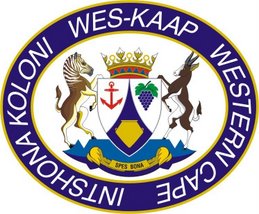Minister Pierre Uys, Western Cape minister of Local Government, Environmental Affairs and Development Planning, has announced the winners of the 2008 Western Cape Cleanest Town Competition.
The Breede River/Winelands local municipality (consisting of Robertson, Ashton, Montague, Bonnievale and McGregor) were awarded with the top prize at the ceremony.
Swartland municipality, the 2006 and 2007 winner, is this year's runner-up, with Overstrand municipality the second runner-up.
Stellenbosch municipality received the award as the Most Improved Municipality.
All winners received a cash prize to be used on integrated waste management.
This year a special focus of the competition was to recognize the role of district municipalities. The Eden District municipality received an award for the most supportive district. Their proactive and innovative approach to tackling waste management challenges included the establishment of a Regional Waste Forum, financed and drove the process for the development of Integrated Waste Management Plans (IWMPs) for all municipalities in the district. The municipality developed a Master plan that included planning around regional landfill sites. The district plays a very active role in driving the Waste Management in Education programme developed by the province.
The theme of the award ceremony focused on resource efficiency of municipalities with the aim of being 2wise2waste (a waste management programme by the Provincial Government) and bringing our attention to the impact of human activities on our planet and in particular on how we can reduce our impacts now, in order to preserve our planet for future generations.
Minister Uys says: "The objective of the competition is to create awareness around waste management and to encourage creative solutions to the complex problems facing municipalities. It further aims to regain pride amongst communities, and to enhance community involvement in
integrated waste management practices. It is also envisaged that IWMP receives adequate attention in Integrated Development Plans (IDPs) to ensure that waste management is prioritized and adequate budgets are located to develop the required infrastructure."
The Provincial winners will take part in the national leg of the competition. The City of Cape Town is automatically entered into the national competition as it is the only metropolitan council in the province.
Enquiries: Cobus Grobler (media officer) 073 133 7299
Minister Uys 082 4555 144
************************************************
MORE BACKGROUND:
The Cleanest Town Competition (CTC) is a national competition that has been running since 2001. The CTC is managed by the Western Cape Department of Environmental Affairs and Development Planning and administered by the national Department of Environmental Affairs and Tourism (DEAT). In the provincial leg, competing local municipalities are evaluated by a panel of officials from various departments. The panel visit towns in local municipalities and evaluate according to the following criteria:
* The physical condition and general cleanliness of the town counts for 40%. Evaluation comprises an unannounced visit to a local municipality. Here the cleanliness of town centres, low income residential areas, commercial and industrial areas, tourist attractions and public facilities e.g. schools, taxi ranks, waste disposal sites etc. are assessed. The condition of townships and informal settlements, with regard to Integrated Waste Management also forms an important part of the evaluation.
* The support systems and municipal waste management initiatives counts for 60%. For this section the panel refers to documents such as the municipality's IWMP, studies undertaken by DEADP and interviews with members of the community. Special focus is given to waste minimisation programmes, community mobilisation and public participation in environmental issues, as well as budgetary and personnel support, enforcement, compliance and implementation of IWMPs.



